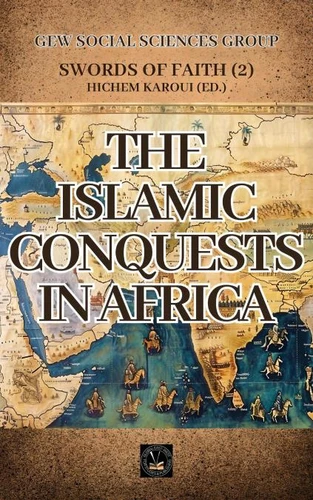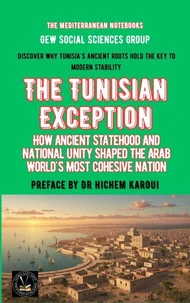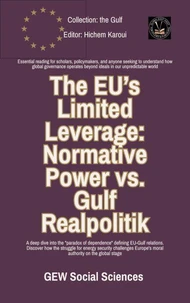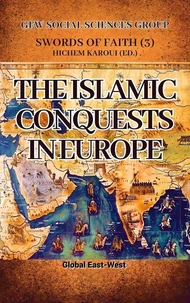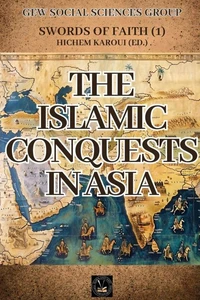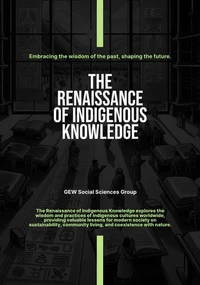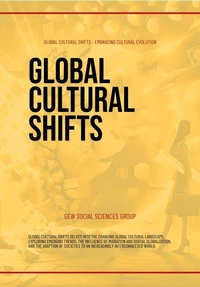The Islamic Conquests In Africa. Swords of Faith, #2
Par :Formats :
Disponible dans votre compte client Decitre ou Furet du Nord dès validation de votre commande. Le format ePub protégé est :
- Compatible avec une lecture sur My Vivlio (smartphone, tablette, ordinateur)
- Compatible avec une lecture sur liseuses Vivlio
- Pour les liseuses autres que Vivlio, vous devez utiliser le logiciel Adobe Digital Edition. Non compatible avec la lecture sur les liseuses Kindle, Remarkable et Sony
- Non compatible avec un achat hors France métropolitaine
 , qui est-ce ?
, qui est-ce ?Notre partenaire de plateforme de lecture numérique où vous retrouverez l'ensemble de vos ebooks gratuitement
Pour en savoir plus sur nos ebooks, consultez notre aide en ligne ici
- FormatePub
- ISBN8227836816
- EAN9798227836816
- Date de parution19/07/2024
- Protection num.Adobe DRM
- Infos supplémentairesepub
- ÉditeurBig Dog Books, LLC
Résumé
This is the second volume in a trilogy dedicated to the early expansion of Islam. The first was about Asia, the second is about Africa, and the third is about Europe. The driving idea behind this study is to examine the rise and expansion of Islamic empires from the 7th century onwards, focusing on their military conquests, strategic alliances, and cultural advancements. The authors aim to show the transformative impact of Islam on the Arabian Peninsula and beyond.
Specifically, the study seeks to highlight the key factors that contributed to the unification of Arabian tribes under Islam, the innovative military tactics and strategic alliances used by early Muslim armies, and the significant role of trade routes and diplomatic efforts in facilitating the rapid expansion and consolidation of Islamic rule across regions like Persia, Byzantium, and North Africa.. This book's research background focuses on the rise and expansion of Islamic empires from the 7th century onwards, highlighting their military conquests, strategic alliances, and cultural advancements.
The approach is well motivated as it emphasizes Islam's transformative impact on the Arabian Peninsula and beyond.. The research methodology proposed in this study includes an analysis of historical events, military strategies, and the role of trade routes in facilitating the spread of Islam.. The tasks involve understanding the early Islamic conquests and their impact on regions like Persia, Byzantium, and North Africa.
The performance achieved by these methods supports their goals by demonstrating the successful expansion and consolidation of Islamic rule. Methods . Analysis of the unification of Arabian tribes under Islam;. Examination of military tactics used by early Muslim armies;. Study of the role of trade routes in spreading Islamic teachings;. Exploration of diplomatic efforts and alliances formed by early Muslims;. Investigation of encounters with Byzantine and Persian Empires;. Detailed look at the conquest of the Arabian Peninsula and subsequent expansions.
Specifically, the study seeks to highlight the key factors that contributed to the unification of Arabian tribes under Islam, the innovative military tactics and strategic alliances used by early Muslim armies, and the significant role of trade routes and diplomatic efforts in facilitating the rapid expansion and consolidation of Islamic rule across regions like Persia, Byzantium, and North Africa.. This book's research background focuses on the rise and expansion of Islamic empires from the 7th century onwards, highlighting their military conquests, strategic alliances, and cultural advancements.
The approach is well motivated as it emphasizes Islam's transformative impact on the Arabian Peninsula and beyond.. The research methodology proposed in this study includes an analysis of historical events, military strategies, and the role of trade routes in facilitating the spread of Islam.. The tasks involve understanding the early Islamic conquests and their impact on regions like Persia, Byzantium, and North Africa.
The performance achieved by these methods supports their goals by demonstrating the successful expansion and consolidation of Islamic rule. Methods . Analysis of the unification of Arabian tribes under Islam;. Examination of military tactics used by early Muslim armies;. Study of the role of trade routes in spreading Islamic teachings;. Exploration of diplomatic efforts and alliances formed by early Muslims;. Investigation of encounters with Byzantine and Persian Empires;. Detailed look at the conquest of the Arabian Peninsula and subsequent expansions.
This is the second volume in a trilogy dedicated to the early expansion of Islam. The first was about Asia, the second is about Africa, and the third is about Europe. The driving idea behind this study is to examine the rise and expansion of Islamic empires from the 7th century onwards, focusing on their military conquests, strategic alliances, and cultural advancements. The authors aim to show the transformative impact of Islam on the Arabian Peninsula and beyond.
Specifically, the study seeks to highlight the key factors that contributed to the unification of Arabian tribes under Islam, the innovative military tactics and strategic alliances used by early Muslim armies, and the significant role of trade routes and diplomatic efforts in facilitating the rapid expansion and consolidation of Islamic rule across regions like Persia, Byzantium, and North Africa.. This book's research background focuses on the rise and expansion of Islamic empires from the 7th century onwards, highlighting their military conquests, strategic alliances, and cultural advancements.
The approach is well motivated as it emphasizes Islam's transformative impact on the Arabian Peninsula and beyond.. The research methodology proposed in this study includes an analysis of historical events, military strategies, and the role of trade routes in facilitating the spread of Islam.. The tasks involve understanding the early Islamic conquests and their impact on regions like Persia, Byzantium, and North Africa.
The performance achieved by these methods supports their goals by demonstrating the successful expansion and consolidation of Islamic rule. Methods . Analysis of the unification of Arabian tribes under Islam;. Examination of military tactics used by early Muslim armies;. Study of the role of trade routes in spreading Islamic teachings;. Exploration of diplomatic efforts and alliances formed by early Muslims;. Investigation of encounters with Byzantine and Persian Empires;. Detailed look at the conquest of the Arabian Peninsula and subsequent expansions.
Specifically, the study seeks to highlight the key factors that contributed to the unification of Arabian tribes under Islam, the innovative military tactics and strategic alliances used by early Muslim armies, and the significant role of trade routes and diplomatic efforts in facilitating the rapid expansion and consolidation of Islamic rule across regions like Persia, Byzantium, and North Africa.. This book's research background focuses on the rise and expansion of Islamic empires from the 7th century onwards, highlighting their military conquests, strategic alliances, and cultural advancements.
The approach is well motivated as it emphasizes Islam's transformative impact on the Arabian Peninsula and beyond.. The research methodology proposed in this study includes an analysis of historical events, military strategies, and the role of trade routes in facilitating the spread of Islam.. The tasks involve understanding the early Islamic conquests and their impact on regions like Persia, Byzantium, and North Africa.
The performance achieved by these methods supports their goals by demonstrating the successful expansion and consolidation of Islamic rule. Methods . Analysis of the unification of Arabian tribes under Islam;. Examination of military tactics used by early Muslim armies;. Study of the role of trade routes in spreading Islamic teachings;. Exploration of diplomatic efforts and alliances formed by early Muslims;. Investigation of encounters with Byzantine and Persian Empires;. Detailed look at the conquest of the Arabian Peninsula and subsequent expansions.

